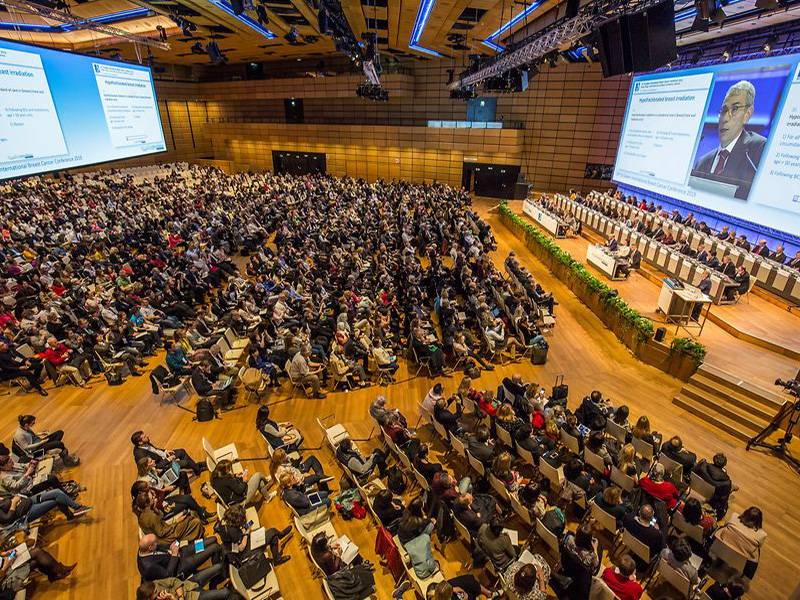The Power of Event Legacy - a Quest Worth Continually Exploring

Beyond the legacy activities that can be planned during events, scientific congresses undoubtedly generate a legacy per se. When scientists and healthcare professionals come together, scientific exchanges take place and value is created. Ideally, this impact should not only lead, in the case of medical congresses, to better and more effective patient treatment, but also lay the foundations for future scientific meetings. The following case study explores the impact and value created beyond scientific development within a professional community. Looking at a distinct case of 2021, the question of what a PCO can do to create an additional legacy will be discussed.
Author: Florian Fehringer − Director of International projects at Mondial Congress & Events
Let’s travel back to a time when the only pandemic knowledge we had was from films and not from personal experience. That was a time when biannual congresses brought together over 3,000 participants in person from over 70 countries, for 4 days. In the present case, this congress - an oncology conference - was to have taken place in March 2021, however, by the end of 2020, it became clear that it could not be held in its usual format as planned.
Rescheduling was not an option, as the scientific outcome of each edition helps define the latest treatment recommendations. It was therefore time to adapt to the situation and update the format, making it virtual. The objective was clear from the beginning: to set a high-level benchmark on how to continue with medical education, as well as the uninterrupted scientific meeting during the restricted face-to-face meeting periods. Turning individual lectures into a digital format was an easy step. The biggest challenge, however, was adapting the main asset of this conference − a one-day consensus session where a multidisciplinary panel of 50 experts from all continents discusses and votes on how to treat early-stage breast cancer.
Taking up the challenge, the PCO decided to get rid of the classic concept of the frontal lecture and add interactivity. They completely changed the narrative with more experts beyond the traditional panel of 50; and suddenly, those experts could join the discussion from the comfort of their offices and homes. Doctors and scientists who traditionally would not have attended in person, but were still very much involved in the topic on a day-to-day basis, had a voice through this interaction. The decision to add the audience as a participating voice to the panel opened up the floor for even more informed and comprehensive discussions. For the first time, questions from the audience were raised with a new Q&A tool. Thus, the focus of the discussion was also set by the participants and the audience had the opportunity to vote and actively influence the direction of that discussion.
Later, the results were presented in comparison with the experts’ results, showing much more than just an interesting outcome. It was a message to the participants, telling them that they were part of a successful meeting and that their knowledge and opinions played a vital role in the scientific outcome. They are an active and valued part of the community. What seemed like a very mundane message, had the power to transform a cold and digital conference into a bonding experience, giving the participant an active and key role for the scientific community.
The atmosphere was incredibly motivating and collaborative. The numbers speak for themselves: with 3,316 participants from six continents and a wide range of medical fields, the congress proved to be a popular and appealing event. More people attended than in previous in-person editions and the number of first-timers was well above average. More than 90% of participants rated the new session concept and learning experience as excellent or good. Furthermore, the impact was not limited to the participants’ conference experience but, more importantly, directly affected patient care and standards of treatment. The Q&A segments not only allowed delegates to contribute to the discussion, but also led into more practical issues they encountered in their experiences − which included some points that would not have otherwise received much attention. As such, this provided participants with even more relevant information with a direct impact on patient care.
In uncertain times like these, it is the human being behind the screen that is often overlooked in the flood of digital solutions: the interaction gesture not only extended the scientific result by sending an important message of appreciation to the public, but also enhanced the scientific discourse in its practical application to improve patient care. We were forced to adapt an existing concept and made it even better by doing so. The ongoing pandemic led us to find solutions and further develop functional concepts to make them a better experience for everyone involved − a quest worth continually exploring.
Mondial Congress & Events is one of Europe's leading PCOs and market leader in Austria. In more than 50 years of existence, Mondial has organised more than 2.000 association congresses in locations all over Europe, with participant numbers ranging from half a dozen to tens of thousands of delegates This article was provided by the International Association of Professional Congress Organisers. IAPCO represents today 137 companies from 40 countries, comprised of over 9900 professional congress organisers, meeting planners and managers of international and national congresses, conventions and special events. www.iapco.org
Other Articles
About Us
Supported by the Union of International Associations (UIA), the International Association of Professional Congress Organisers (IAPCO) and the Interel Group, the global public affairs and association management consultancy, Headquarters Magazines serve the needs of international associations organising worldwide congresses.














